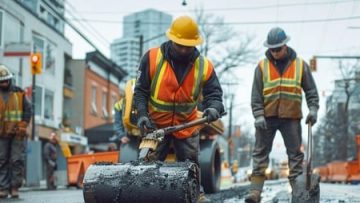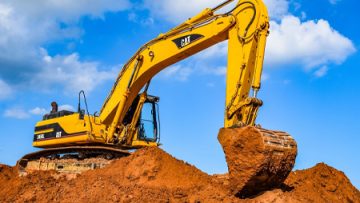Cities are dynamic entities, constantly evolving and reshaping themselves. Beneath the concrete and asphalt, buried under layers of development, lies a rich tapestry of history waiting to be unearthed. Urban excavation isn’t just about digging foundations for new buildings; it’s a form of urban archaeology, a process of uncovering the stories of past generations and gaining a deeper understanding of our urban heritage.
The Layers of Urban History:
Cities are built upon layers of time. Each generation leaves its mark, adding to the existing urban landscape. Excavating these layers is like peeling back the pages of a history book, revealing glimpses into the past. From ancient settlements to modern metropolises, urban excavation can uncover artifacts, structures, and other evidence of past civilizations, providing invaluable insights into how cities have developed and how societies have changed over time.
The Process of Urban Excavation:
Urban excavation is a complex and meticulous process that requires careful planning, specialized equipment, and a team of experts, including archaeologists, engineers, and construction workers. Here’s a glimpse into the key steps involved:
- Research and Planning: Before any digging begins, extensive research is conducted to gather historical information about the site. Old maps, historical documents, and archaeological records are consulted to identify potential areas of interest.
- Site Survey and Assessment: A thorough site survey is conducted to assess the geological conditions, identify any potential hazards, and determine the best excavation methods.
- Controlled Excavation: Excavation is carried out in a controlled and systematic manner, carefully removing layers of soil and debris. Any artifacts or significant findings are meticulously documented and preserved.
- Artifact Analysis: Artifacts recovered during excavation are cleaned, cataloged, and analyzed by archaeologists. These artifacts can provide valuable information about the daily lives of past inhabitants, their technologies, and their cultural practices.
- Documentation and Preservation: The entire excavation process is carefully documented, including photographs, maps, and detailed records of all findings. Significant structures or artifacts may be preserved in situ or carefully removed and relocated for preservation.
Contact RFC Excavating & Landscape Construction at (973) 304-0500 for more information!
Challenges of Urban Excavation:
Urban excavation presents unique challenges that are not typically encountered in rural archaeological digs:
- Limited Space: Urban sites are often constrained by existing buildings, infrastructure, and utilities. Excavation must be carefully coordinated to avoid damaging these existing structures.
- Underground Utilities: Cities are crisscrossed by a network of underground utilities, including pipes, cables, and sewers. Excavation must be carried out carefully to avoid damaging these utilities and causing disruptions to service.
- Traffic and Pedestrian Flow: Excavation in urban areas can disrupt traffic and pedestrian flow. Careful planning and traffic management are essential to minimize disruptions.
- Environmental Concerns: Urban sites may be contaminated with pollutants or hazardous materials. Special precautions must be taken to protect the health and safety of workers and the surrounding community.
- Funding and Resources: Urban excavation projects can be expensive and require significant resources. Securing funding and obtaining necessary permits can be challenging.
Did You Know?
Urban excavation can uncover surprising finds: From ancient Roman ruins buried beneath modern European cities to remnants of early settlements in North America, urban excavation has yielded countless historical treasures that have shed light on our past.
The Rewards of Unearthing the Past:
Despite the challenges, urban excavation offers significant rewards:
- Preserving History: Urban excavation helps preserve our cities’ history by uncovering and documenting evidence of past civilizations.
- Understanding Urban Development: By studying the layers of urban history, we can gain a better understanding of how cities have developed and how societies have changed over time.
- Connecting with the Past: Urban excavation allows us to connect with the people who lived in our cities in the past, giving us a sense of continuity and belonging.
- Enhancing Urban Planning: The knowledge gained from urban excavation can inform urban planning decisions, helping to create more sustainable and historically sensitive cities.
- Educational Opportunities: Urban excavation sites can provide valuable educational opportunities for students and the public, fostering a greater appreciation for history and heritage.
Contact RFC Excavating & Landscape Construction at (973) 304-0500 to discuss your excavation needs and contribute to uncovering the history beneath our cities.

 (973) 304-0500
(973) 304-0500


